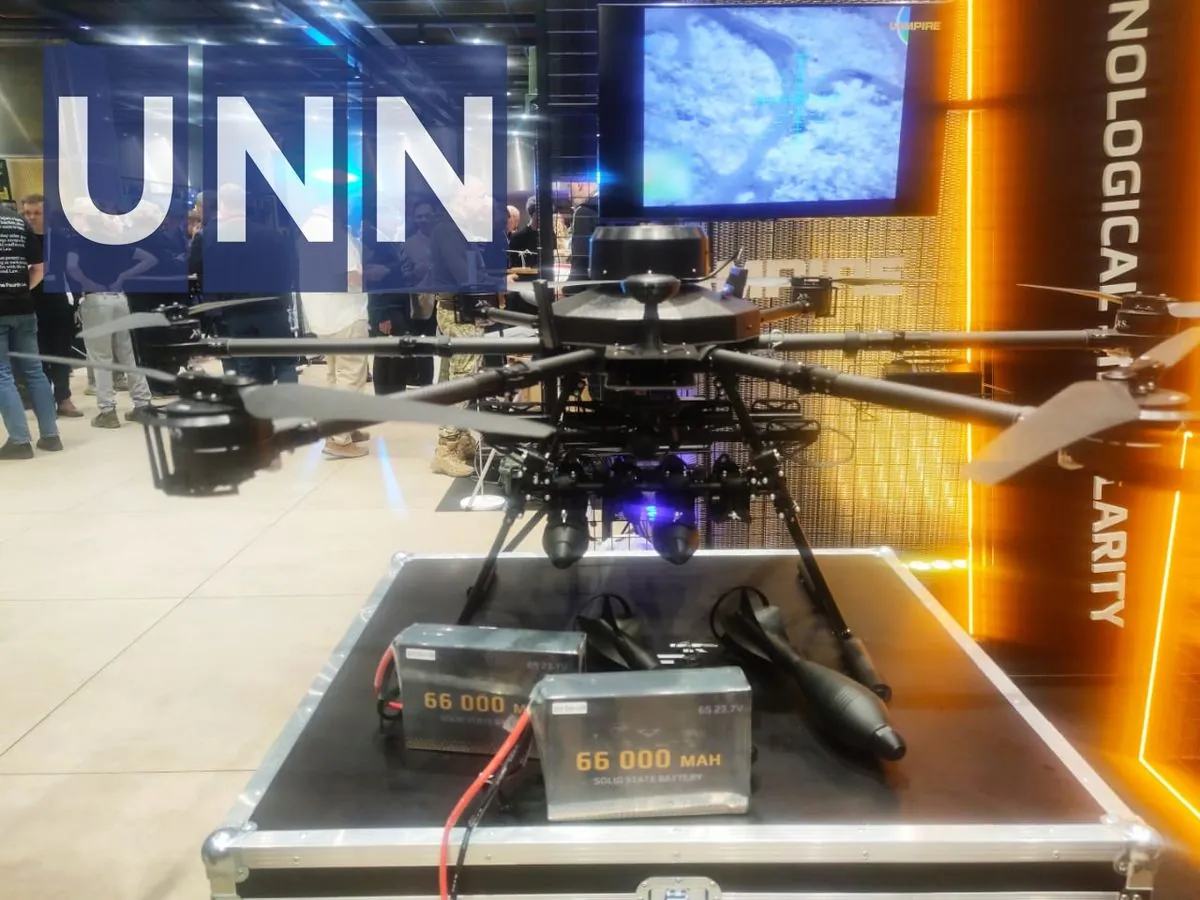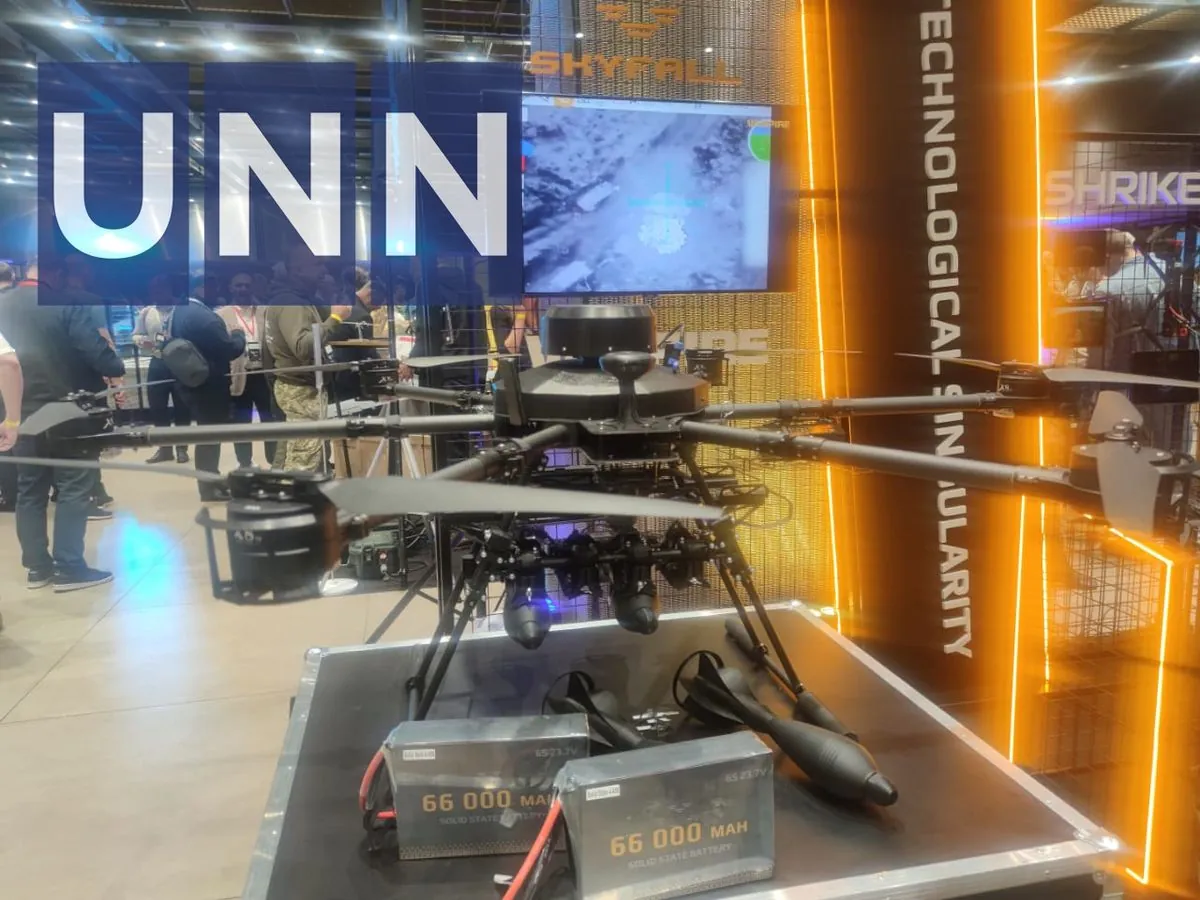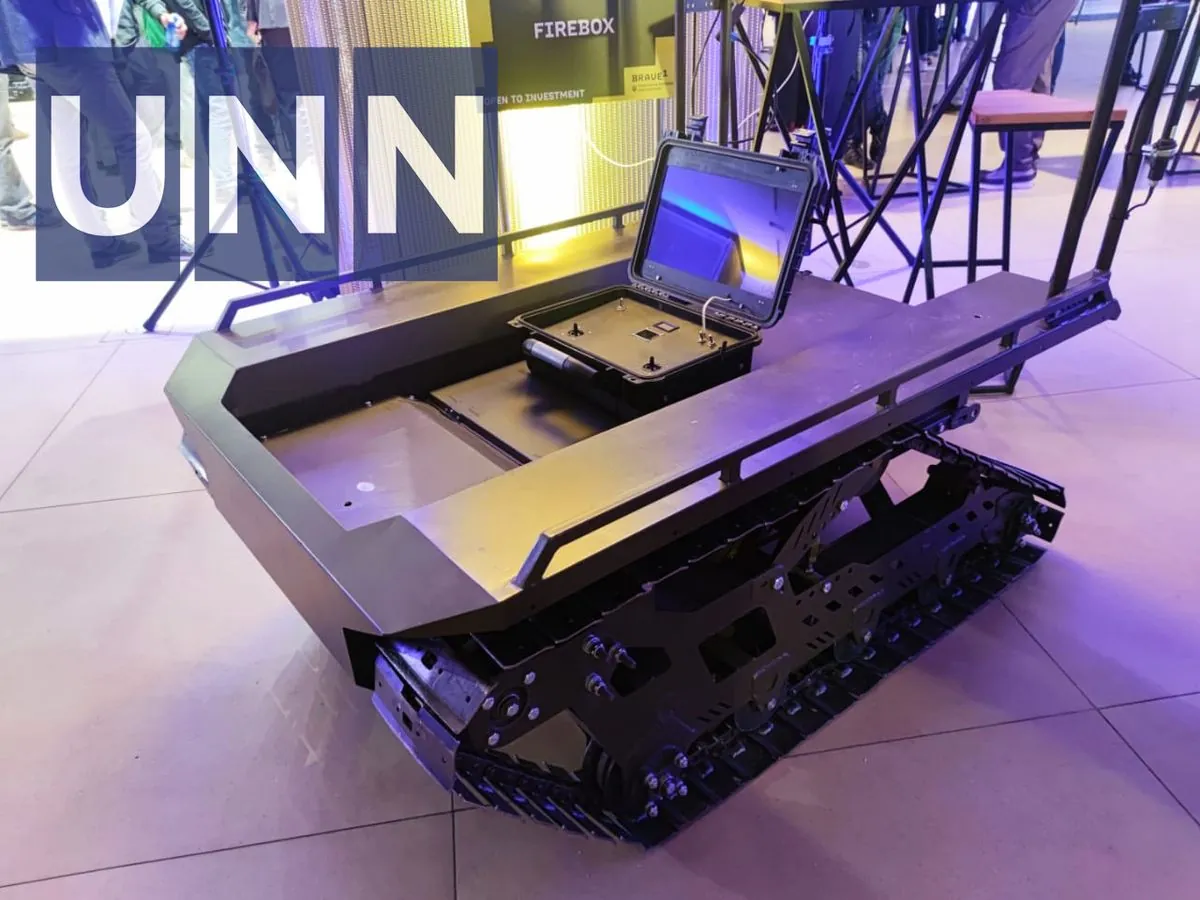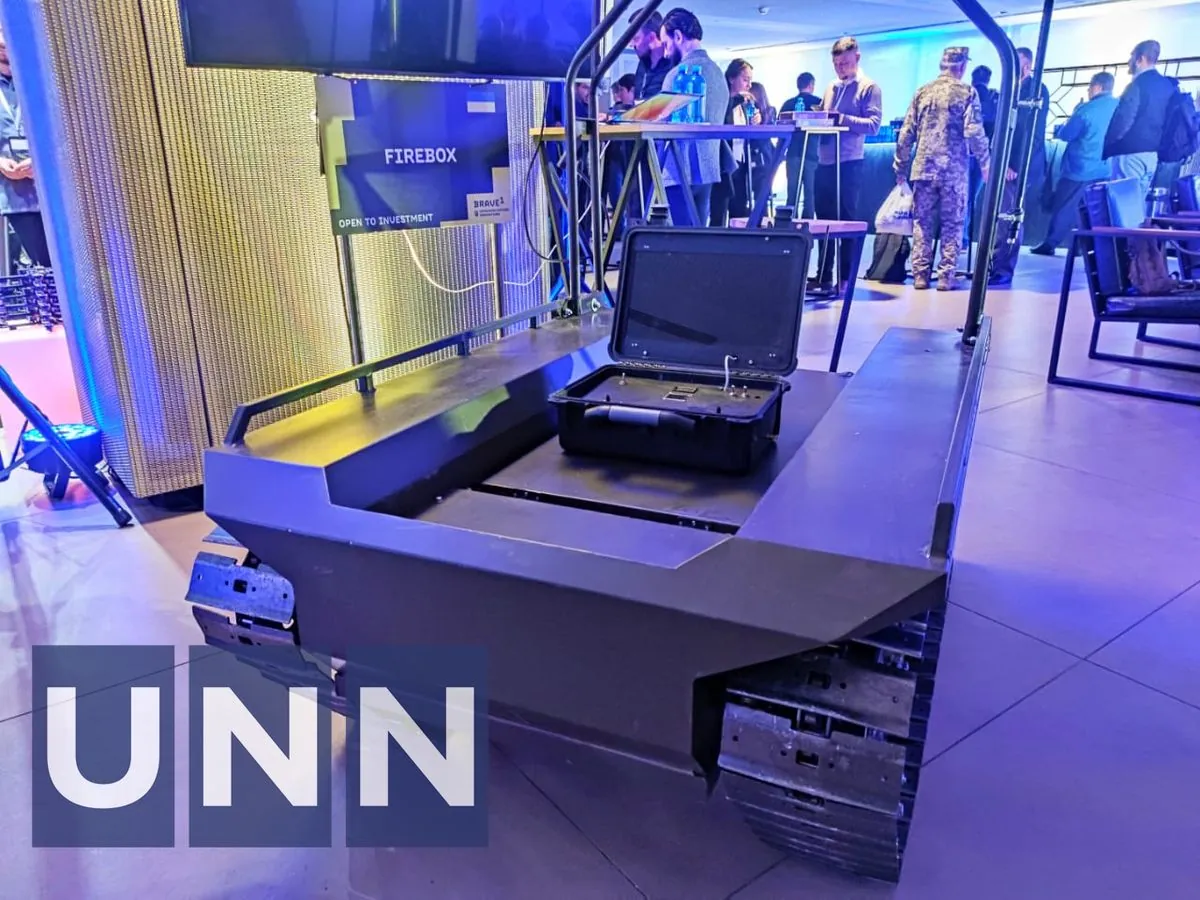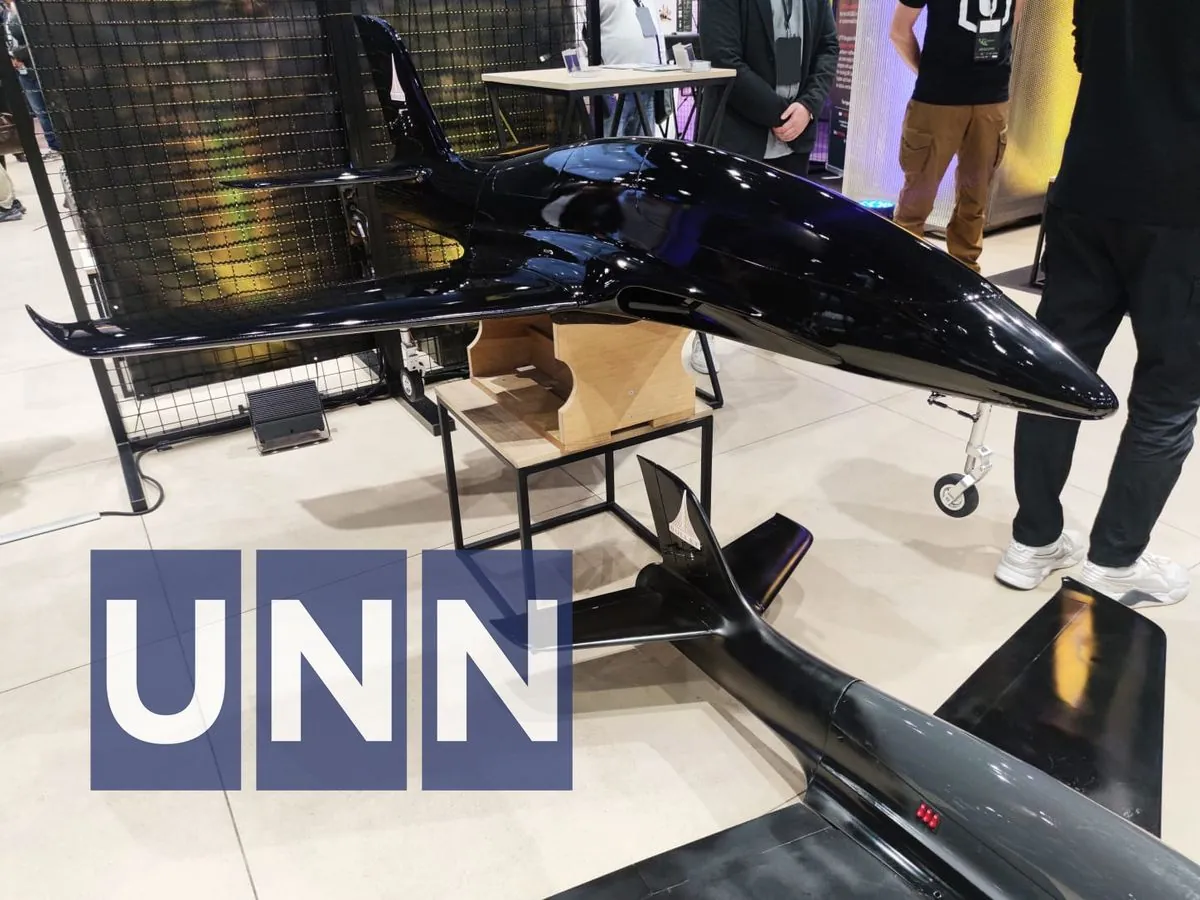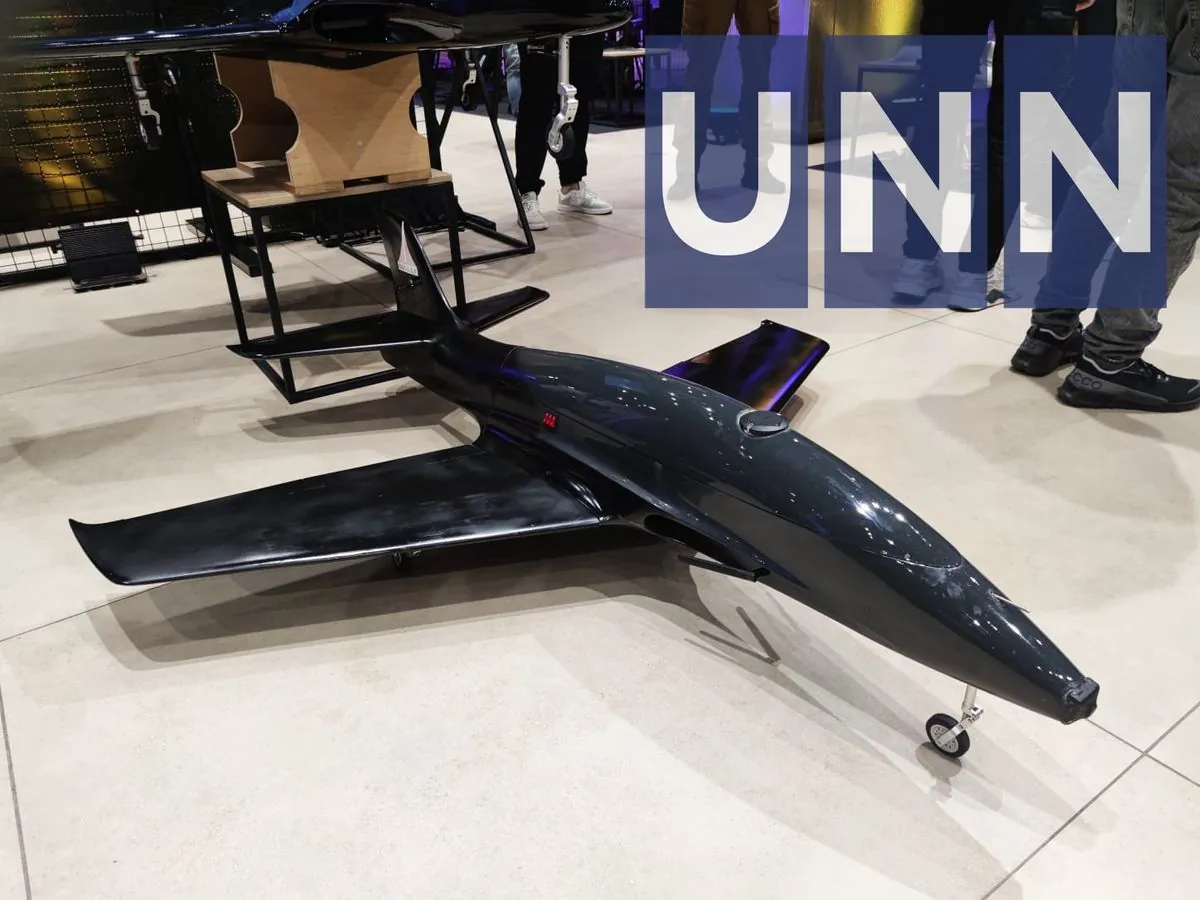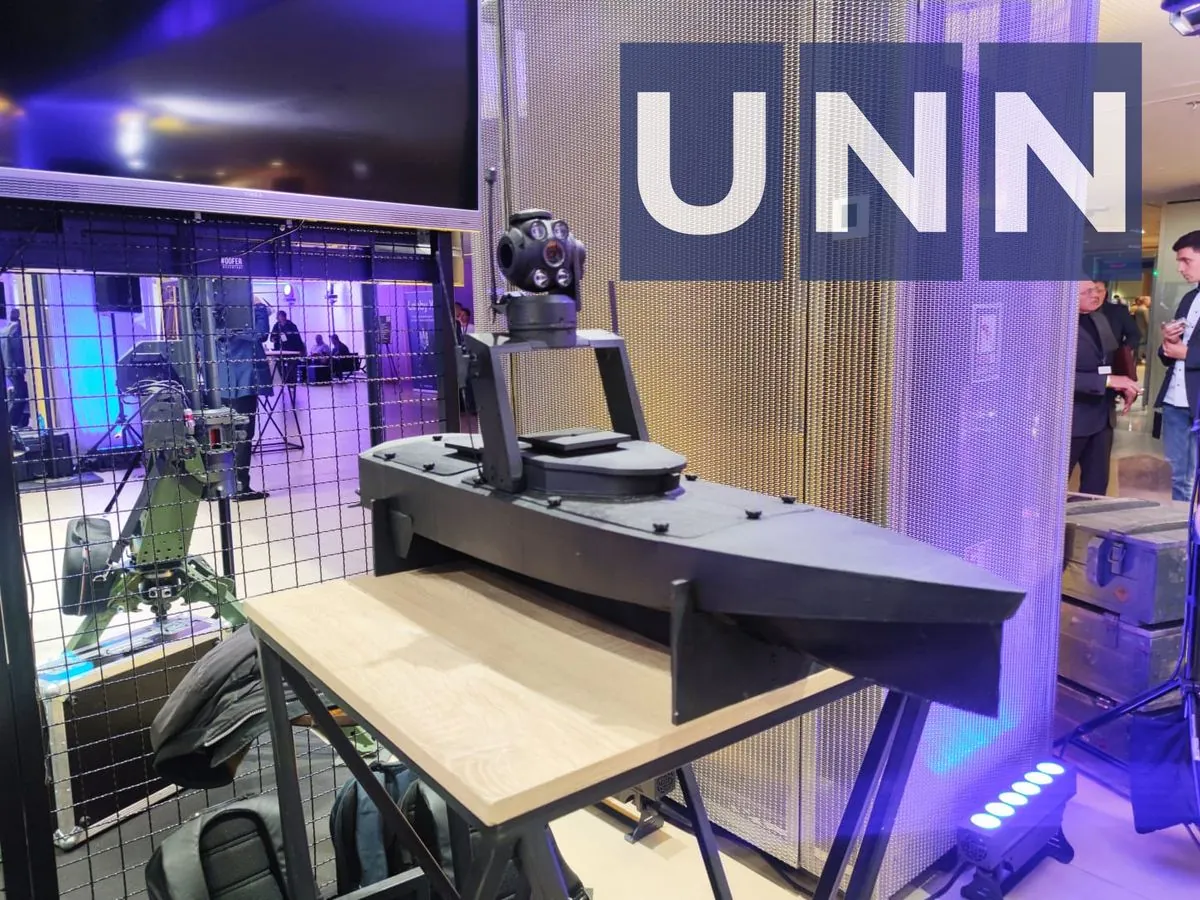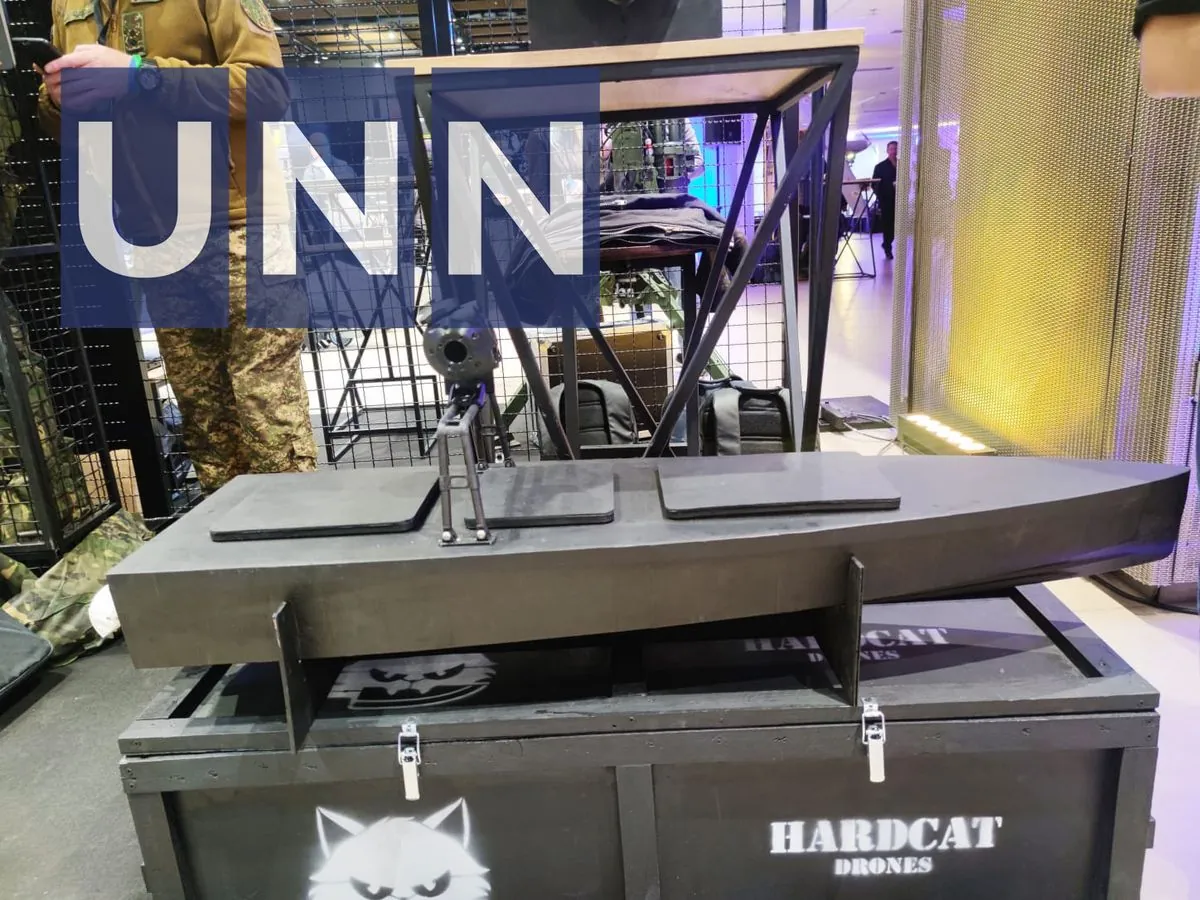Foam drone, jet interceptor drone, and "Vampire": developers presented defense innovations in Kyiv
Kyiv • UNN
Ukrainian defense innovations were presented at the Defense Tech Valley summit: Vampire bomber drones, Tanchyk platforms, Babka reconnaissance drones, and other unique developments for the front.

Brave1 held the first international investment summit, Defense Tech Valley, dedicated to Ukrainian defense innovations. The summit hosted over 650 Ukrainian and international developers from more than 250 teams, UNN reports.
The first day of the summit began with a pitching session where 28 teams presented innovative solutions in defense technologies: from UAVs and AI-guided systems to robotic complexes and artillery detection systems. Special emphasis at the summit was placed on UAVs, ground robotic complexes, and electronic warfare. Representatives of the Ministry of Digital Transformation and the Ministry of Strategic Industries emphasized the importance of state support for defense innovations.
UNN spoke with some of the developers' representatives.
Night bomber drone "VAMPIRE"
A representative of the company that manufactures "VAMPIRE" bombers told UNN that "VAMPIRE" is a Ukrainian-made night bomber drone. It can fly up to 15 kilometers and carry a weight of 15 kilograms.
"It usually operates at night. It is widely represented in the Armed Forces. Over 100 combat units use it. This bomber is typically used to target enemy forces, dugouts, and trenches. The drone flies in, drops bombs, and returns," the representative said.
The second possible aspect of its application is remote mining.
"For example, if a unit knows that an enemy offensive will occur in the morning or at night, in the near future, then this drone is used to fly in and mine the territory. Russian armored vehicles begin an offensive, drive over mines, and are blown up. The third option is humanitarian missions. These drones deliver water, ammunition, food, medicine, etc., to the front line. For example, we know of cases where generators were carried by this drone," said the representative of the development company.
He also noted that as of now, the company can, in principle, produce up to 4,000 VAMPIRE units per month. Although currently, it produces less. Orders come from both private entities and the state.
"Private funds were allocated for the development and production of the first drones; now the state purchases these drones, but charitable foundations, other private companies, military-civil administrations, military units, etc., also purchase them. The cost of the complex is significantly less than one million hryvnias. The complex includes one aircraft, six batteries, a remote control, an external station, all antennas, amplifiers, cables. The aircraft is fully ready for operation with three sets of batteries. In its class, the VAMPIRE aircraft, a night bomber, is the cheapest," the company representative said.
Robotic platform "Tankych"
Oleksiy Rudniev, the owner of FIREBOX LLC, a company engaged in development and manufacturing, told a UNN journalist that the main function of "Tankych" is logistics, delivering ammunition and provisions to the front line, to "zero."
"The second function is modularity, in the sense that many people buy it and install turrets, and with these turrets, they replace a person, because a machine gunner is the first person hunted by FPVs," Rudniev explained.
He also stated that the platform is capable of performing demining functions and can pass through anti-personnel mines.
Rudniev added that another function is the ability to drop mines. The mine-dropper is designed for 15 mines, which have already been designed and are ready for production.
"What distinguishes our platform from all others? Firstly, it's the tracked drive, which we made and designed entirely ourselves. No one else has anything like it. What is its advantage? It passes very well through swampy terrain. Or if it freezes, the motors don't jam either. And we designed our own control boards that are not jammed by EW. It has a remote control range of up to 5 kilometers," Rudniev said.
According to him, the robotic platform "Tankych" has already been codified, received operational approval, and is being used at the front.
The cost of "Tankych" is 8.5 thousand dollars (310-350 thousand UAH).
"We have a capacity of 20 units per month. Currently, we work based on demand. The demand is relevant, especially for turrets and mine-droppers," Rudniev said.
Dragonfly drone
A representative of TAF DRONES said that the effective range of the dragonfly drone is 110 kilometers, and it weighs about 4 kilograms.
"These are still experimental samples, meaning we are not yet mass-selling them, but we plan to do so. They have shown themselves very well at the front; we tested them together with the soldiers. One of the aircraft flew for over a year in the Kharkiv direction, never crashed, was not shot down. Why? Because it is made of foam, which means it is very poorly detected by any search means," the company representative said.
According to him, the "Dragonfly" has a low cost, with the basic configuration costing about 5 thousand dollars per aircraft, and for the entire system, which consists of two aircraft and a ground station, about 20 thousand dollars. But this is a basic configuration that can be modified and supplemented.
"It (the dragonfly drone - ed.) has not yet passed testing. We first conduct our own tests together with the soldiers, and then we will certify it. This process is almost complete for us," said the representative of the development company.
The final cost of the "Dragonfly" will depend on the demand for this model. The company says it is ready to scale production quite quickly.
He noted that TAF DRONES primarily produces "Kolibri" FPV kamikaze drones.
"Our drones are quite popular in the Ukrainian market. We are one of the largest manufacturers of "Kolibri" FPV kamikaze drones. "Kolibri" are standardized and codified according to NATO and Ministry of Defense standards, so we currently produce about 40,000 drones per month. These are mainly state contracts," the company representative said.
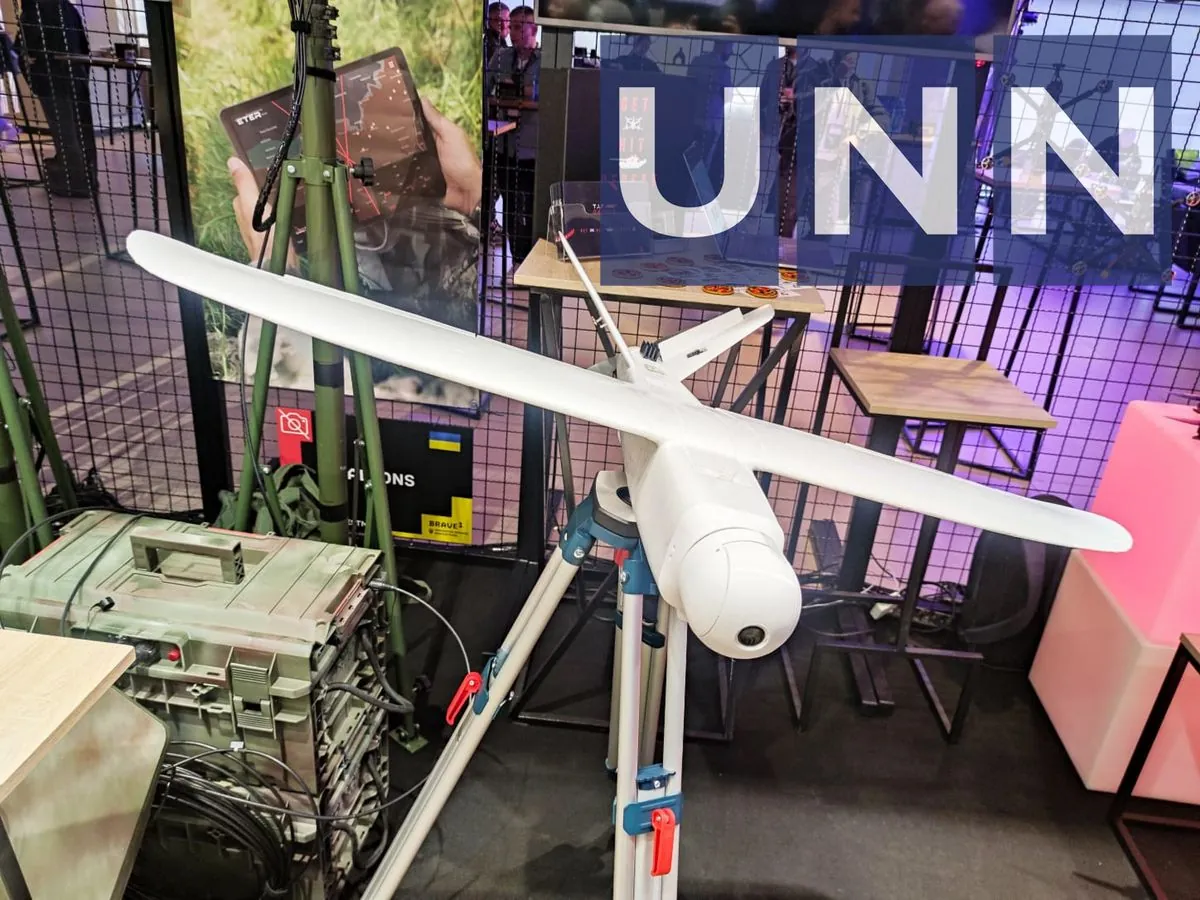
Highline-T Drone
A representative of Hueless told a UNN journalist that the main advantage of the Highline-T copter is that it stays in the air 24/7.
"It is powered by a cable, hovering at a height of 100 meters. Accordingly, it can perform two main functions: relaying communication for drones, for ground robotic platforms, for other types of tactical communication, and also 24/7 surveillance. It can perform surveillance at borders, or, for example, surveillance of military warehouses," the developer's representative explained.
According to him, a great advantage is that the drone can work completely without GPS; it has optical navigation.
"In this copter, we use only one part from China – a cable, which we can also, in principle, replace with a German or US analogue, but as of now, it's like this, meaning almost completely without Chinese components. We have passed codification, certification, and are working with Brave1," the company representative said.
He also noted that the fourth iteration of Highline-T presented at the exhibition has not yet undergone combat tests; factory tests are still ongoing.
"Our third iteration of the product underwent testing in the Lyman direction, in the Zaporizhzhia direction. I wouldn't say all of them were successful, but all of them were test runs that allowed us to make the number of changes we believed were necessary for this copter to be absolutely adapted to the conditions of modern warfare. This fourth iteration is planned to be scaled up and put into serial production," said the Hueless representative.
He noted that the Highline-T copter has no remote control. Everything is done via cable. Therefore, it is completely EW-resistant, completely radio-invisible in the air.
The estimated cost of this complex starts from 35 thousand dollars.
"We will produce (these drones - ed.) in any case, whether investors are found or not, because it is necessary to understand that our main leitmotif is to create a product and give it to the military. And how we find these funds, or not, is our problem. Ultimately, we must achieve a capacity of 200 units per year by 2025," the developer's representative stated.
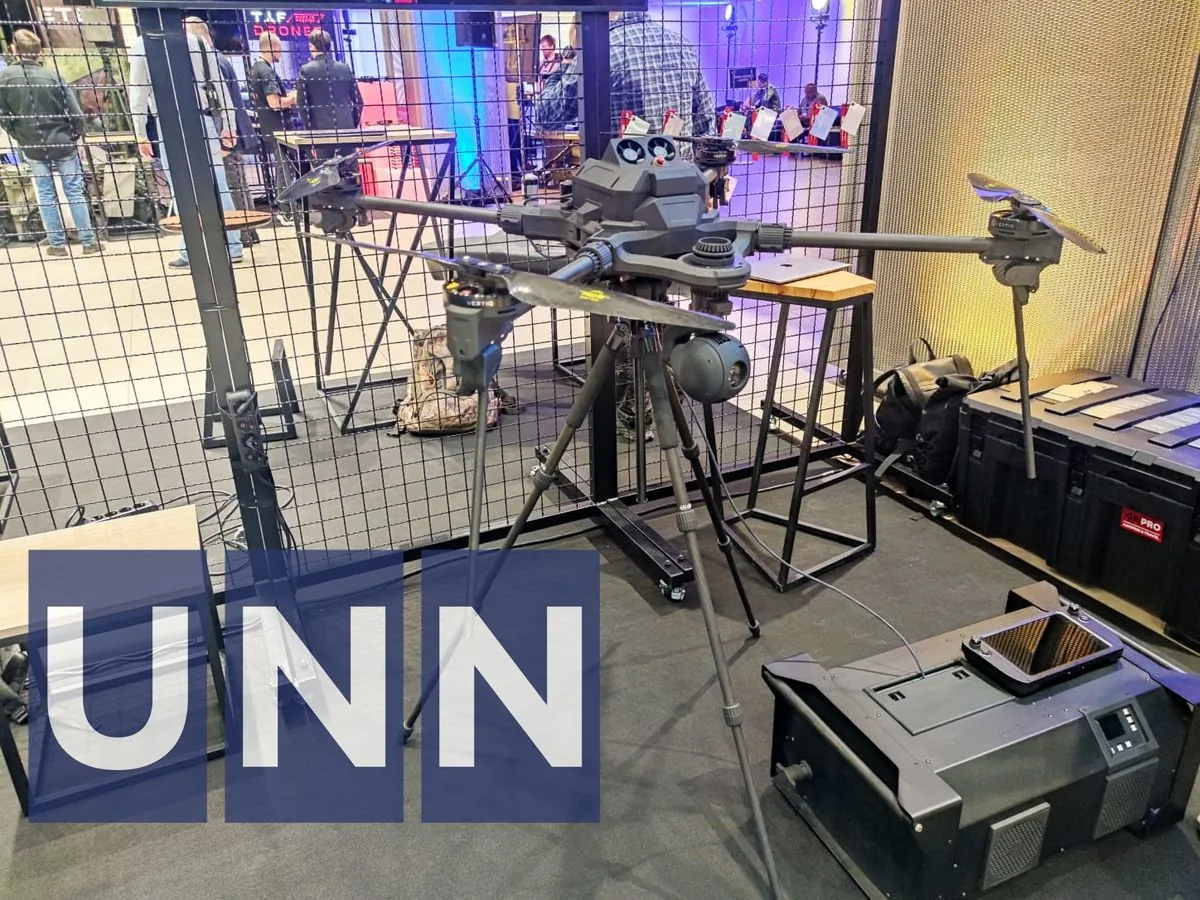
Jet interceptor drone "Bullet"
Legal representative Oleksandr Kozachenko told a UNN journalist that the "Bullet" drone can intercept unmanned aerial vehicles, such as the "Orlan."
"Why was a jet model used? Because it can track targets, it can intercept targets, it can choose which priority target to shoot down, and up to 10 of them can be launched. This is significantly cheaper than shooting down drones with missiles, 'Patriots'," Oleksandr said.
He noted that the purpose of this development is to save missiles and shoot down drones.
The range of the domestic drone is 100 km. The current cost of the Bullet is 27 thousand dollars.
"The company has developed 10 devices. It has not yet been used in combat conditions. It is currently undergoing flight tests, still in the stage of finding an approach to mission execution. We want to attract funds to establish serial production," Kozachenko said.
He also noted that the Bullet is already being used in conditions as close to combat as possible.
"We have made a final project that we can now present for production. That is, we are satisfied with it, it is already fully functional, this is the second model. And our plans are to make a stratospheric aircraft that will control all this almost automatically," said the company representative, adding that such an aircraft is still under development.
The Bullet drone has two sizes for different objects.
"Different warheads are laid. They differ in that they can shoot down different targets. If it's just a reconnaissance drone, it can be a small drone; if it's a 'Shahed', it can be a jet drone that will perform the task much faster," Kozachenko explained.
According to him, the production of the drone was fully financed by DEGREE-TRANS.
"We are currently looking for investors who can make this, so to speak, as large-scale as possible, because we know the line (production - ed.), we know exactly what parts are needed, we have adjusted everything and are ready to attract funds," he said.
River kamikaze drone "Black Widow"
Dmytro, co-founder of Hardcat, told UNN that "Black Widow" is a river kamikaze drone that can be used for both enemy destruction and surveillance.
"The main goals are the destruction of small motorboats in the south of Ukraine, in Kherson region on the Dnieper. It can also be used for surveillance, transportation of small cargoes. And based on this model, we are currently developing a solution for demining anchor mines on rivers," Dmytro said.
The cost of the basic "Black Widow" model is 1200 dollars, and then it depends on the configuration.
The drone has already passed field tests and will soon undergo combat tests and deployment.
"Currently, we have applied for a grant from Brave1. Brave1 helps us a lot. We are also looking for investors now. We have completed the Defense Builder Accelerator program... There are connections to investors. People are ready to invest in us," Dmytro said.
He noted that so far, three prototypes have been manufactured.
"In total, we plan to produce up to a thousand units per month," the developer's representative stated.
